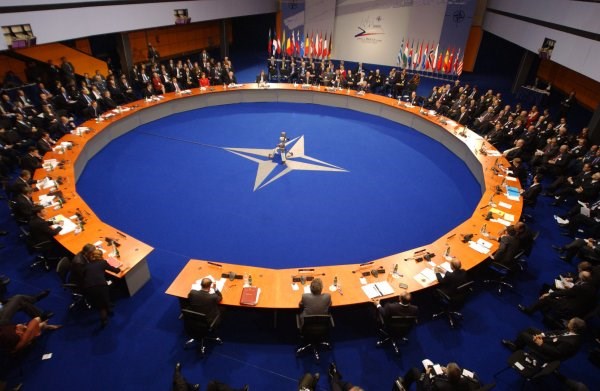NATO to officially declare non-deployment of troops to Ukraine in July summit declaration
NATO is set to enshrine its refusal to send troops to Ukraine in a declaration to be adopted at the alliance’s summit in July, reports the Italian newspaper Corriere della Sera, citing what it alleges are already prepared drafts of the final statement. Russian media turned their attention to this publication on May 8. There is no official confirmation of this information at the time.
According to the publication, the declaration will also specify that military assistance to Ukraine will henceforth be coordinated not by the head of the Pentagon, Lloyd Austin, but by NATO headquarters in Brussels. Corriere della Sera notes that Ukraine has already been receiving the bulk of its assistance not from the US but from other NATO members. Nonetheless, there's a political aspect to consider: coordination of assistance by NATO structures will appear more united to the international community and to Russian President Vladimir Putin, the paper explains.
Otherwise, Corriere della Sera writes, NATO's approach to assisting Ukraine and countering the threat from Russia will remain unchanged. The North Atlantic Alliance will continue to bolster its eastern flanks so that, if necessary, up to 300,000 soldiers could be swiftly deployed from the Baltic nations to Bulgaria in defense.
NATO countries are also exploring possibilities to deliver to Kyiv a new batch of Patriot missile defense systems. Ukrainian authorities estimate that 25 such systems would suffice to protect the country's entire airspace, while seven Patriot systems would serve to shield major industrial centers from Russian aerial attacks.
However, Corriere della Sera points out, there are so far only preliminary agreements in place for the supply of two Patriot systems to Ukraine—one from Germany and one from Spain. The Netherlands has in principle agreed to provide their Patriot system to Kyiv but is discussing legal aspects, while both Poland and Greece have declined.
NATO Secretary-General Jens Stoltenberg has repeatedly stated that the alliance has no plans to dispatch troops to Ukraine. However, in the midst of these renewed discussions, France’s President Emmanuel Macron, whose nation is part of NATO, has publicly contemplated the dispatch of troops to Ukraine several times in recent months, even mentioning conditions under which this might happen, causing a stir. In response to the revived conversation, Russia declared it would conduct exercises involving tactical nuclear weapons and summoned the ambassadors of France and the United Kingdom to its Foreign Ministry.
